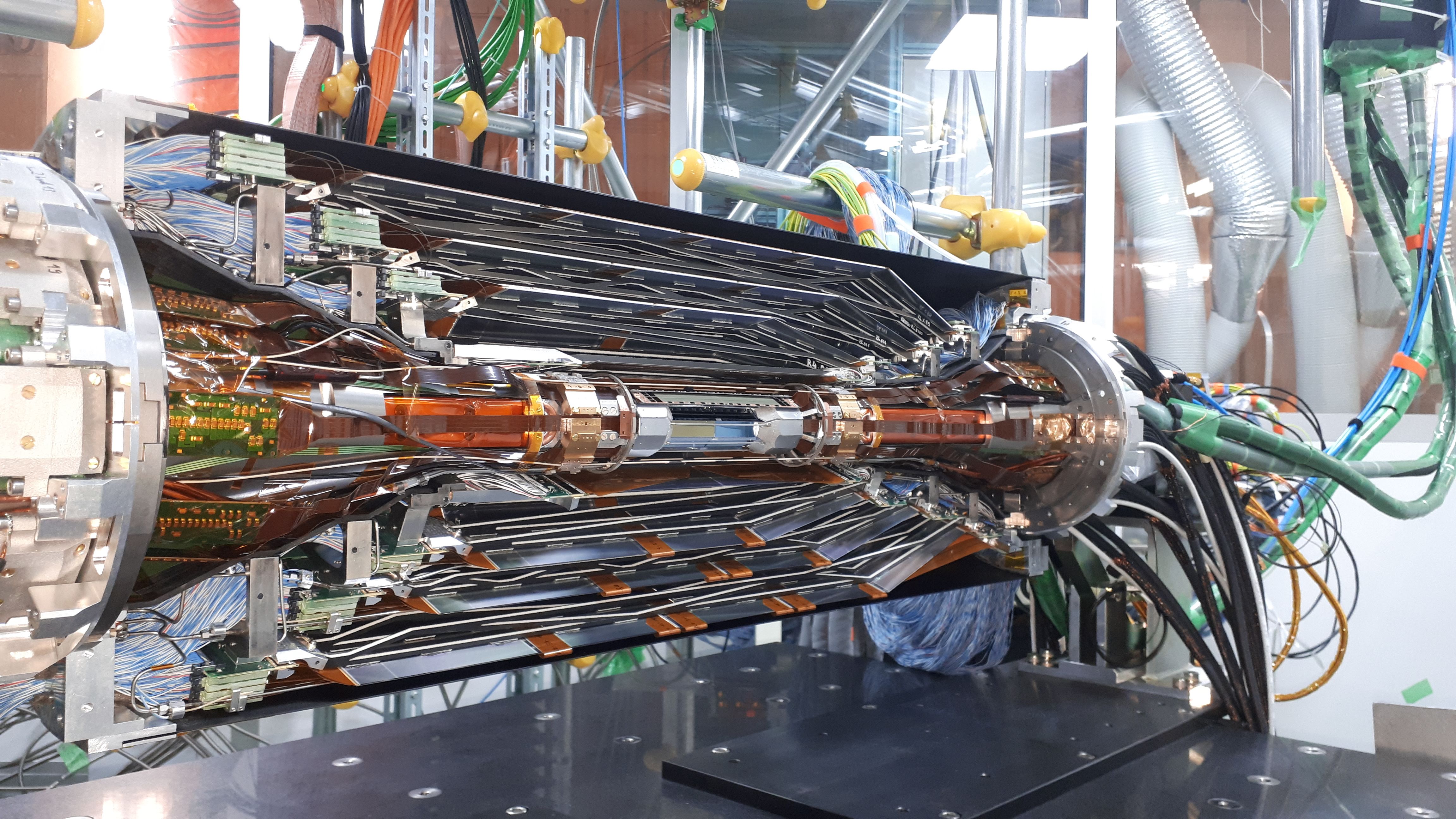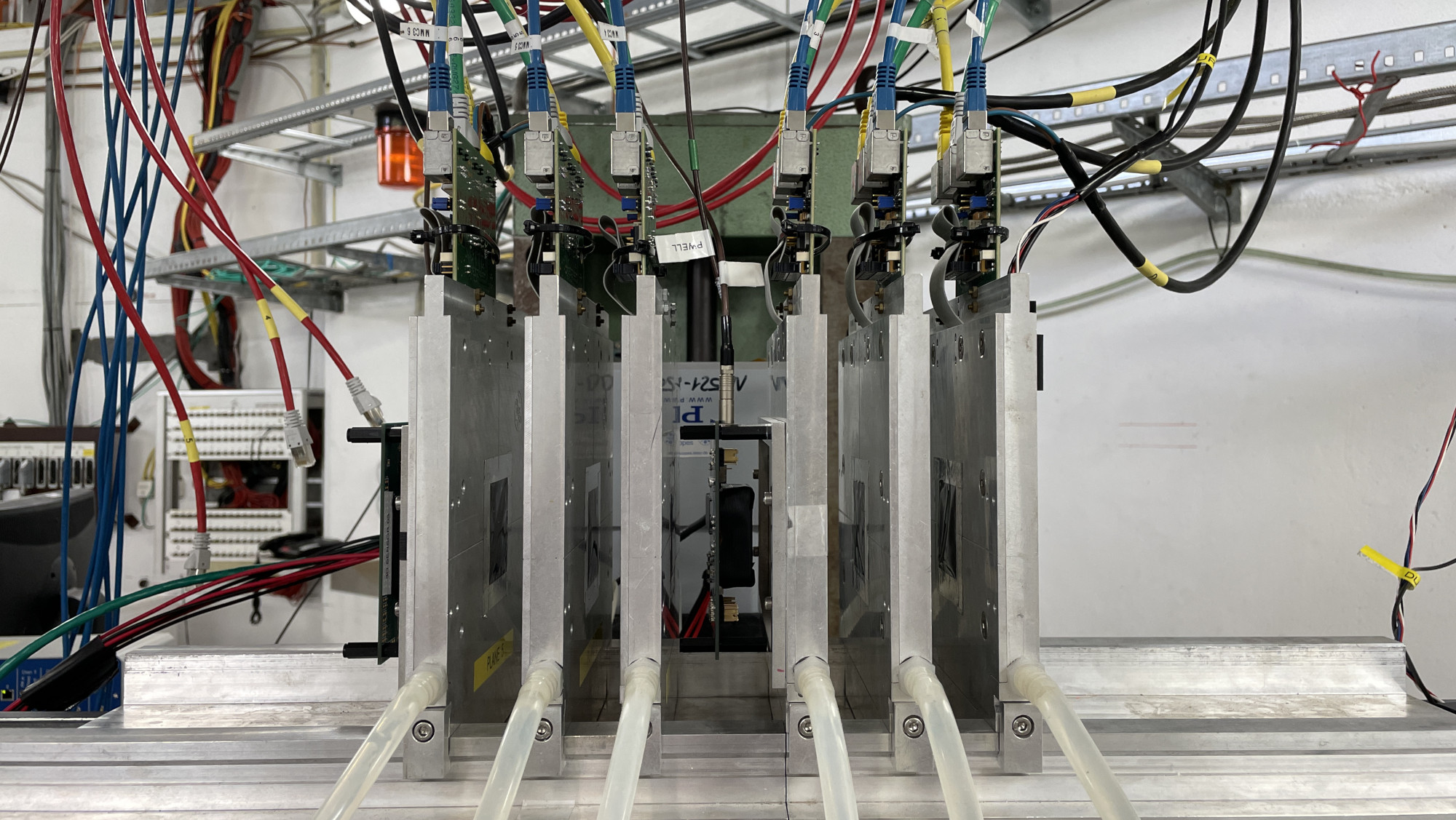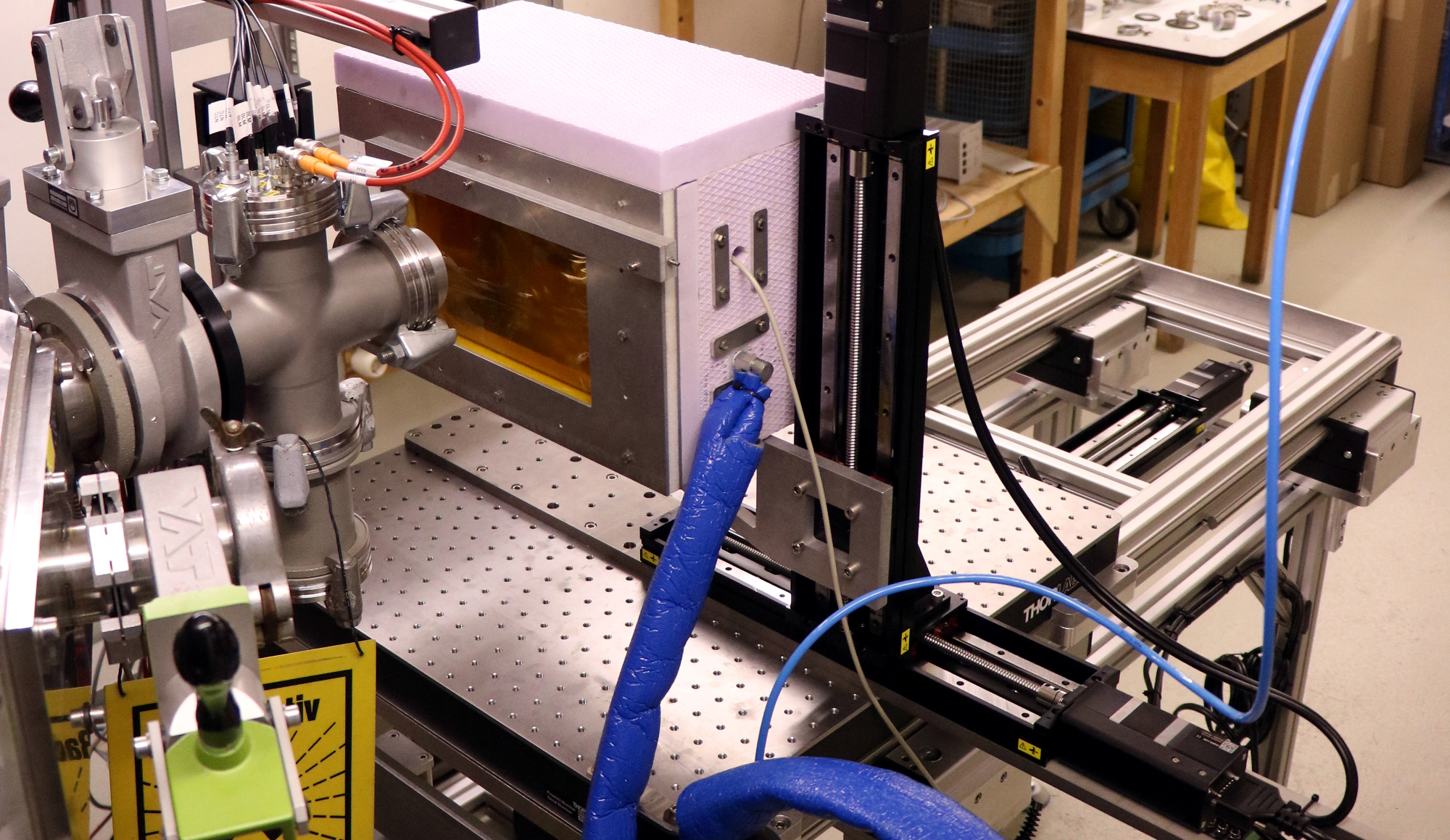Silizium Labor Bonn Thesis Topics

Silizium Labor Bonn (SiLab) is a detector physics group, located at the University of Bonn, Germany.
The following lists available thesis topics at Silizium Labor Bonn
( Last modified: April 13, 2025 )
ATLAS Pixel Detector

The ATLAS experiment is one of two general purpose detectors at the LHC in Geneva and responsible for the discovery of the Higgs Boson in 2012. To maintain the discovery potential for new physics for one of the larges detectors ever built, an upgrade for ATLAS is foreseen in 2029. The Silizium Labor in Bonn is involved in the development of the ATLAS inner tracker (ITK) system, at the heart of ATLAS, only a few millimeters away from the interaction point. We have contributed to the development and testing of the newly designed hybrid pixel readout chip (ATLAS ITkPix) including chip verification, development of test systems and wafer level tests. Currently, the main focus is the development of test stands in order to test detector modules during the production phase. During this two-year phase (starting in 2024), approximately 1000 detector modules have to be extensively tested in the Silizium Labor before insertion into the final detector at CERN.
There are currently no topics available in this project, but we are searching for working students who can help us during production of the ATLAS modules. Please contact Yannick Dieter if you are interested.
BELLE 2 Pixeldetector

The BELLE 2 particle collision experiment in Japan started taking data in spring 2019. A european collaboration led by Germany developed the pixel detector (PXD) for particle tracking and vertex determination in the experiment. The sensors of the PXD are based on DEpleted P-channel Field Effect Transistors (DEPFETs). The SiLab group has been involved for 10 years in the investigation of this technology and the development and testing of the final components.
Topic: Study of the burried SiO2 layer in Belle II DePFET modules with dedicated test structures
(Last modified on: April 13, 2025)
- Type: Bachelor
- Location: SiLab, ASIC Lab
- Starting date: 15.05.2025
- Contact: Georgios Giakoustidis
- Description:
- Basic simulation of MOSCAPs and MOSFETs with TCAD
- CV measurements with test structures -> oxide thickness
- IV measurements with test structures -> channel mobility, transconductance, threshold voltage, …
- Simulation vs Measurements
- Study of intrawafer variabilities (oxide thickness uniformity, etc …)
- By thesis completion, you will know:
- Basic soldering
- Basic TCAD simulation
- MOSFET and MOSCAP characteristics and how to measure them
- Handling of systematic uncertainties in measurements
- Python programming
- Basic data analysis
- Scientific plotting
- Scientific writing ***
Sensor Development

From daily use digital cameras, medical X-ray imaging devices to particle tracking detectors in high energy physics (HEP) experiments, silicon pixel sensors efficiently convert photons and charged particles to electric signals. Like all semiconductor devices, the development of pixel sensors follows the cyclic procedure of: design → produce → test → optimize, aiming to achieve high spatial resolution and efficiency as well as low leakage current. Especially in the field of HEP, radiation-tolerant sensors need to be developed to withstand severe radiation damage.
There are currently no topics available in this project.
Beam Test Infrastructure

Dedicated beam test campaigns are regularily conducted by our group to measure the hit detection efficiency of pixel detectors. This measurements needs a high-energy particle beam provided by accelerators and an array of detector planes to identify unique particle tracks. With that information one can confirm if the device under test (a so called DUT) also registered a hit at that time and at the predicted location.
The required setups consist of many devices and components of which a lot are developed and built by our group.
There are currently no topics available in this project.
Proton Irradiation Site for Silicon Detectors at Bonn University

A proton irradiation site at the Bonn isochronous cyclotron at the Helmholtz Institut für Strahlen- und Kernphysik (HISKP) allows radiation damage studies of prototype silicon detectors for state-of-the-art, high-energy physics experiments such as ATLAS and BELLE 2. Especially pixel detectors, which are typically positioned close to the interaction point to enable high spatial resolution for tracking, are exposed to harsh radiation environments which dictate their lifetime. In order to verify that the detectors meet requirements, radiation damage studies are necessary for prototype detector concepts.
There are currently no topics available in this project.